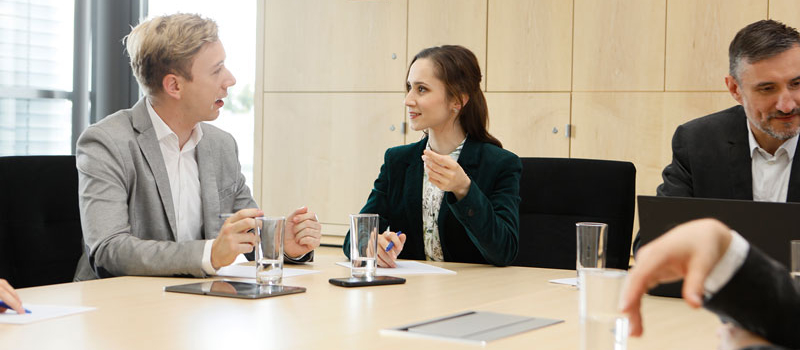Research focus
 Foto: Hardy Welsch
Foto: Hardy Welsch
The main research interests of the Department of Work and Organizational Psychology centre upon the interaction between psychosocial labour conditions and employees’ personal development and health. Here, we pay special attention to new developments in the work environment. Thus, we not only investigate how work and its specific features influence an individual in her or his development, but also examine how individuals behave within this process and shape it.
Specific research topics are
- Work design and its impact on employees
- Antecedents and mechanisms of work stress
- Interactions between various life domains and recovery
-
Investigation of practical problems:
- Flexible work and new forms of work
- Occupational health interventions, job analysis & work design
Current research projects
-
Ambivalent effects of flexible work conditions
Flexible work schedules and flexible locations
- Externally controlled: extended availability
- Self-regulated: e.g. trust-based working time
Flexible forms of steering/control
- Self-designed work, job crafting
- Ambivalent effects of autonomy
- Self-endangering work behaviours
- Work design competency
-
Work-home interaction
- Blurred boundaries between work and other life domains
- Stress and recovery
- Work-family conflict & family-work conflict
-
Job analysis and work design
- Impact of work design interventions: effect size and sustainability
- Practical aspects regarding psychological risk assessment: thresholds when using questionnaire data, the usability of questionnaires, implementation of interventions, interactions between different stakeholders (insurance companies, health management, unions, etc.)
- Assessment of psychological risk factors at work by means of an online questionnaire tool (FGBU, link)
- Leadership in the context of work design: the role of the supervisor, challenges and possibilities, leadership as a psychological risk factor, work conditions of supervisors
-
Theoretical aspects of stress research
- A general theory of work stress
- Challenge – hindrance framework
Past research projects
-
The focus of the research project EngAge was the two-edged influence of high autonomy at work. Based on a set of studies, we developed an online coach (engage-coach.de) to train employees’ competencies regarding self-regulation at work. Here, we targeted employees who are able to design/craft major parts of their work (mobile- flexible employees, solo self-employed, etc.).
-
Within this research project, we investigated the interaction between internal and external work factors and their role in the emergence of time pressure. In order to capture these mechanisms, we ambulatory measured physiological indicators of stress (e.g. cortisol) and supplemented it with electronic diary data. The project offers a comprehensive perspective on the interaction of individual, familial, work-related and regional factors of time pressure.
-
This project examined work characteristics in the context of extended availability requirements. In order to do so, we developed, conducted and evaluated an intervention that aimed at improving the design of and dealing with extended availability requirements.


